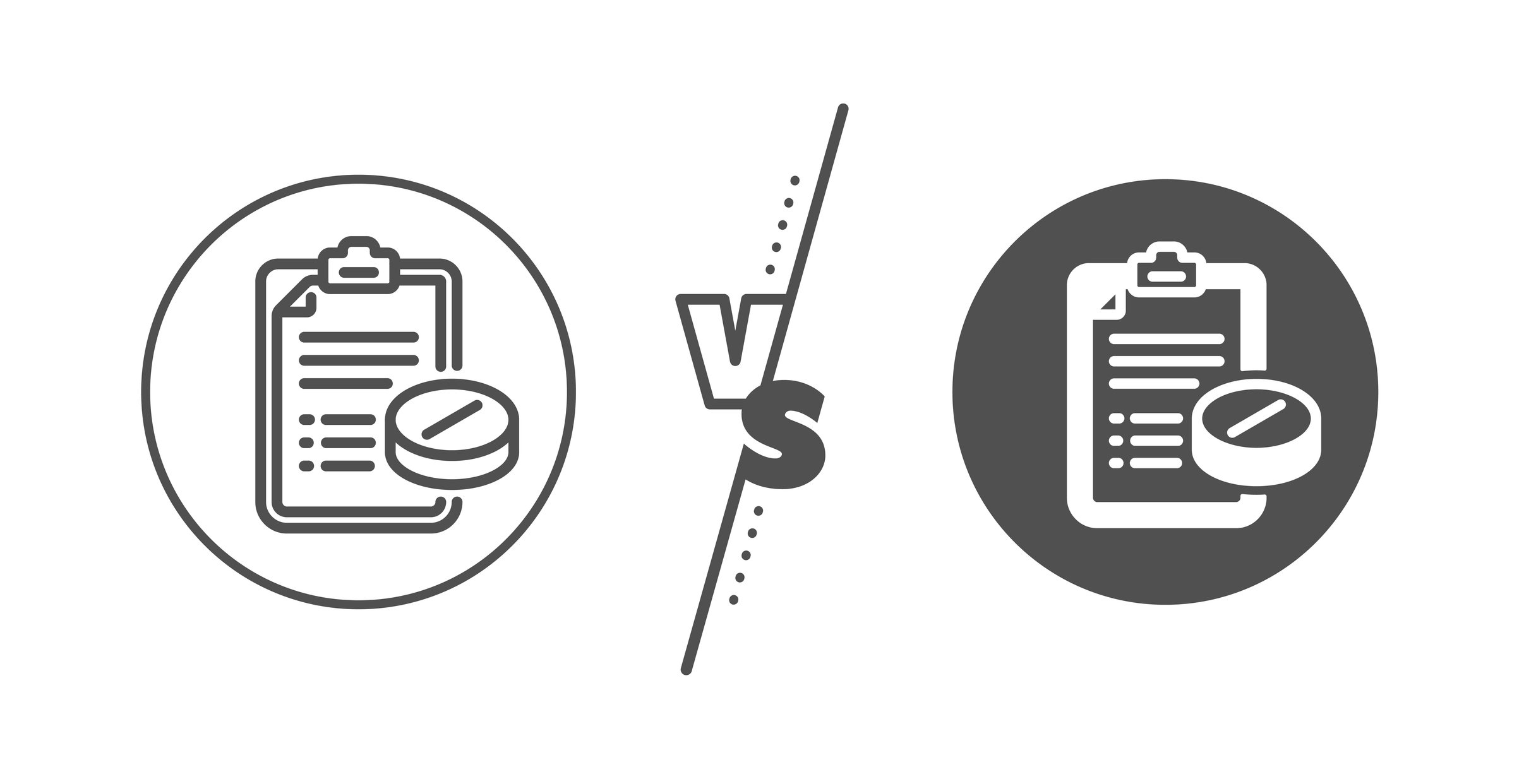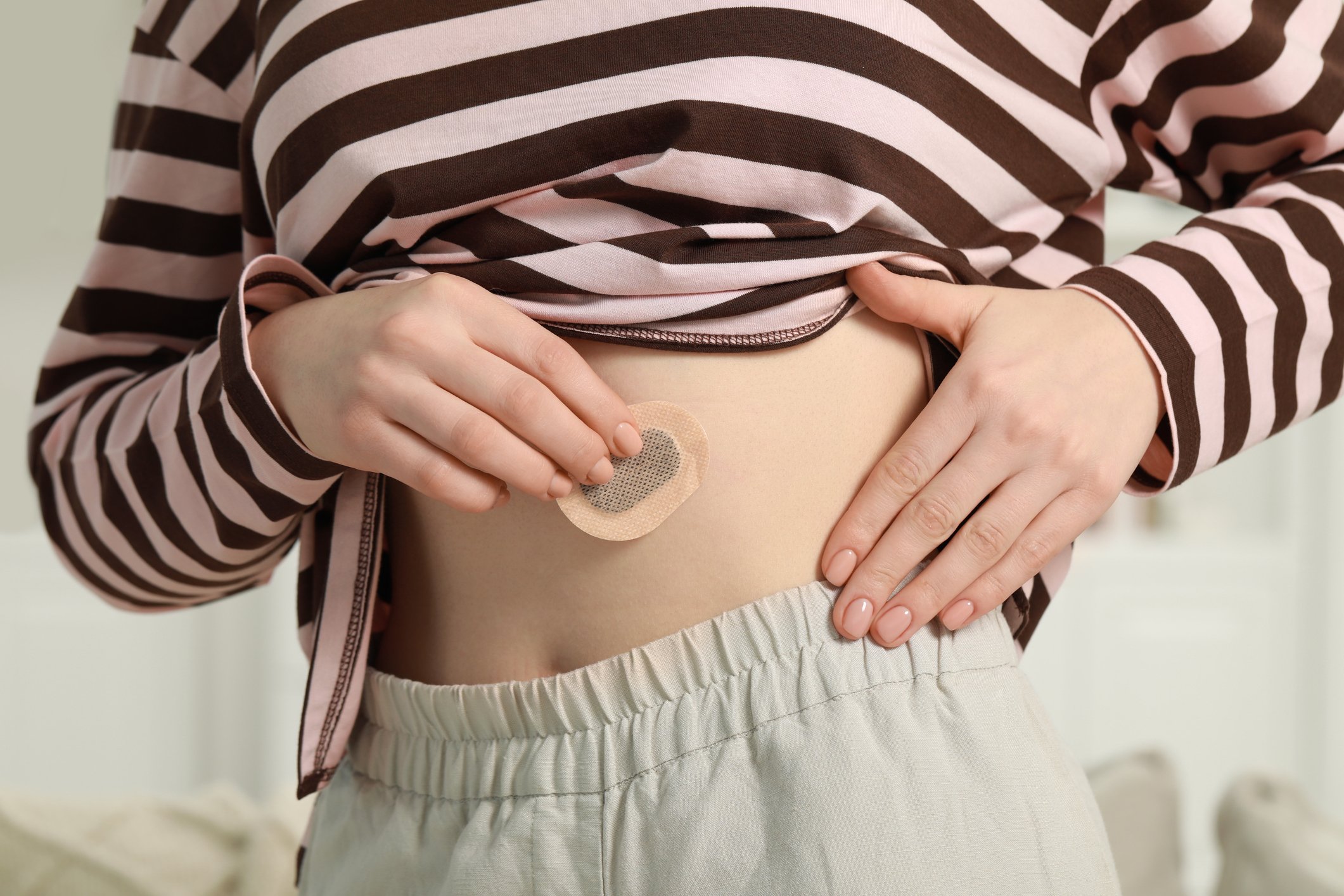Vyvanse vs Ritalin: ADHD Drugs Compared
By Jillian Foglesong Stabile MD, FAAFP, DABOM
October 30, 2025
Prescription Drugs, Your Health & Wellness

Vyvanse vs Ritalin: ADHD Drugs Compared
Managing attention-deficit/hyperactivity disorder (ADHD) often means navigating treatment options that can feel confusing. Two well-known medications, Vyvanse® and Ritalin®, are frequently prescribed to help manage symptoms. Both are stimulant medications, both are effective, but they aren’t identical. If you’re researching Vyvanse vs Ritalin and trying to decide between the two, it helps to understand their differences in terms of how they work, how long they last, side effects, and costs. Let’s break them down clearly and simply.
What is Vyvanse?
Vyvanse® (lisdexamfetamine dimesylate) is a prescription stimulant approved in 2007 for ADHD in children and adults, and later for moderate to severe binge eating disorder in adults. Unlike other stimulants, Vyvanse is a prodrug. Your body converts it into dextroamphetamine gradually through digestion and metabolism. This slower activation offers key benefits:
- Steady release: Fewer highs and crashes
- Convenience: One dose lasts all day
- Lower misuse risk: It can’t be crushed or snorted for a quick effect
Here’s how it’s taken:
- Available as capsules or chewable tablets
- Once daily in the morning
- Capsule powder may be mixed with water or soft food
Due to its extended action, Vyvanse is well-suited for individuals who require all-day coverage at school, work, and beyond.
What is Ritalin?
Ritalin® (methylphenidate hydrochloride) has been used since the 1950s and is one of the most widely studied ADHD medications. It belongs to the methylphenidate family, which also includes Concerta® and Focalin®. Unlike Vyvanse, Ritalin acts almost immediately, making it useful for quick symptom relief. Formulations:
- Ritalin IR (Immediate Release): Works in 20 to 30 minutes; lasts 3 to 4 hours
- Ritalin SR (Sustained Release): Lasts 6 to 8 hours
- Ritalin LA (Long-Acting): Up to 8 hours of coverage in one dose
How it’s taken
- May require multiple daily doses, depending on type
- Available in generics, often at a lower cost
- Some capsule forms can be opened and sprinkled on food
Ritalin’s shorter action can be an advantage if you only need daytime coverage or want to avoid evening stimulant effects.
Why use Vyvanse or Ritalin for treating ADHD symptoms?
Both Vyvanse and Ritalin are stimulants that improve focus, attention, and impulse control in ADHD. Vyvanse offers a slower, all-day effect, while Ritalin acts quickly and provides flexible, shorter coverage.
What is the difference between Vyvanse and Ritalin?
Vyvanse and Ritalin have several differences in how they work:
- Ritalin (methylphenidate): Works by blocking the reuptake of dopamine and norepinephrine in the brain. This action increases levels of these neurotransmitters rapidly, providing quick symptom relief.
- Vyvanse (lisdexamfetamine): A prodrug that must be metabolized in the body into dextroamphetamine. Because activation is slower, the effect builds more gradually and tends to be steadier throughout the day.
The drugs also have differences in onset and duration:
- Ritalin IR (Immediate Release): Starts working within 20 to 30 minutes and lasts about three to four hours.
- Ritalin ER/LA (Extended Release): Offers six to eight hours of symptom coverage, but some people find it wears off before the evening.
- Vyvanse: Takes about one to two hours to take effect but can last up to 14 hours, often covering the entire school or workday, as well as after-hours activities.
Each drug has various formulation options:
- Vyvanse: Comes in once-daily forms, capsules, and chewable tablets, which provide long-acting coverage.
- Ritalin: Available in multiple forms, including short-acting tablets (taken several times a day) and long-acting capsules (once daily). This flexibility lets providers tailor treatment to a person’s schedule.
These differences matter for several reasons:
- Activation: Ritalin provides quick relief, while Vyvanse builds gradually.
- Duration: Vyvanse typically provides reliable all-day coverage. Ritalin can be shorter but allows more control over when the medication is active.
- Flexibility: Ritalin is available in various release options, allowing for easier adjustment of timing. Vyvanse is always long-acting.
- Abuse Risk: Vyvanse has lower misuse potential because it must be metabolized first. Ritalin IR carries a higher risk of misuse.
Due to these differences, the better choice depends on your specific needs. Here is information showing Vyvanse compared to Ritalin:
| Feature | Ritalin | Vyvanse |
| Active Ingredient | Methylphenidate HCL | Lisdexamfetamine (converted to dextroamphetamine) |
| Formulation | Immediate-release (IR), Extended-release (ER) tablet | Once-daily capsules or chewable tablets |
| Dosage Range | IR Tablets: 5, 10, 20 mg ER Capsules (Ritalin LA): 10, 20, 30, 40 mg | Capsules: 10, 20, 30, 40, 50, 60, 70 mg Chewable tablets: 10, 20, 30, 40, 50, 60 mg |
| Onset of Action | IR approx. 20 to 30 minutes; ER varies | Approx. 1 to 2 hours |
| Duration | IR lasts 3 to 5 hours; ER may last up to 8 to 12 hours | Up to 14 hours |
| Dosage Frequency | Once Daily | Once Daily |
| Abuse Potential | Moderate (immediate release is higher) | Lower (must be converted in the body) |
| FDA Approvals | ADHD, Narcolepsy | ADHD, Binge-eating Disorder |
| Generic Available | Yes | Yes |
Understanding the differences between these two medications is crucial if you are considering switching from Vyvanse to Ritalin.
Is Vyvanse the same as Ritalin?
No. Vyvanse and Ritalin are different medications. Vyvanse belongs to the amphetamine class, while Ritalin belongs to the methylphenidate class. While both stimulate similar brain chemicals, their chemical structures and how they’re processed in your body are not the same.
Is Ritalin better than Vyvanse?
There’s no universal better. Choosing Ritalin or Vyvanse depends on your individual needs:
- Ritalin may be better if you want quick results, prefer shorter coverage, or need flexible dosing throughout the day.
- Vyvanse may be better if you want once-daily convenience and smooth control, or if you are also being treated for binge-eating disorder.
Instead of asking Is Vyvanse better than Ritalin? Think of them as different tools. The best one depends on your lifestyle and how your body responds to it.
What side effects are common between Vyvanse and Ritalin?
Vyvanse and Ritalin share many common stimulant side effects. These side effects are usually mild and may improve as your body adjusts to the medication. Still, it’s essential to discuss them with your provider.
- Appetite loss
- Difficulty sleeping
- Mild increases in blood pressure or heart rate
- Irritability, especially as the drug wears off
- Stomach upset
- Headaches
What side effects are not common between Ritalin and Vyvanse?
While both Vyvanse and Ritalin share many common stimulant side effects, some side effects are not common to both. Here are the side effects more common with Ritalin:
- Nervousness or jitteriness when doses kick in
- Rebound hyperactivity as the medication wears off
- More noticeable appetite suppression with IR versions
Here are the side effects more common with Vyvanse:
- Dry mouth
- Constipation
- Longer-lasting side effects due to its all-day activity
Side effects are highly individual. What bothers one person may not affect another.
How successful is Vyvanse in treating ADHD?
Vyvanse is considered very effective for many people living with ADHD. Because it’s designed to last all day, one morning dose often provides steady support for focus, organization, and impulse control throughout the day. Its gradual activation means fewer ups and downs, making daily routines feel more manageable for both children and adults.
How successful is Ritalin in treating ADHD?
Ritalin has been successful for decades. It’s effective at improving attention and reducing impulsivity in children and adults. Its flexibility is an advantage. People can use short-acting doses for targeted times of day or extended-release versions for more extended coverage.
Is Vyvanse better than Ritalin for ADHD treatment?
The answer depends on your goals:
- Vyvanse is better if you want all-day coverage with fewer daily doses.
- Ritalin is better if you want more control over when your medication is active.
The best choice is whichever balances effectiveness, convenience, cost, and side effects for you.
The bottom line
When comparing Vyvanse versus Ritalin, the best option depends on your lifestyle, symptoms, and how your body responds. Vyvanse offers smooth, all-day coverage with once-daily dosing. Ritalin provides flexibility and fast relief, especially in short-acting form. At ScriptSave® WellRx, we know the cost of ADHD medications can be overwhelming. That’s why we’ve been helping people save for over 25 years. With our program, you can save up to 80%* on prescriptions, including ADHD medications such as Vyvanse or Ritalin. Check your savings today on WellRx.com and see how much you can put back in your pocket. DISCOUNT ONLY – NOT INSURANCE. The program is administered by Medical Security Card Company, LLC.
Vyvanse vs Ritalin: Related FAQs
Can you take Vyvanse and Ritalin together?
It’s generally not recommended to take Ritalin and Vyvanse together. Both are stimulants that increase levels of dopamine and norepinephrine. Combining them can raise risks like high blood pressure, anxiety, and insomnia.
Can you take Vyvanse and Ritalin on the same day?
Occasionally, a doctor might prescribe both medications on the same day under very close supervision, but this is rare, and it’s not something to try on your own. If your symptoms aren’t covered by your current regimen, your provider may adjust dosage or switch medications instead.
Is Vyvanse like Ritalin?
Vyvanse and Ritalin are both stimulant medications used to treat ADHD, but they are not the same. Vyvanse is an amphetamine prodrug, while Ritalin is a methylphenidate. They share similarities in boosting focus and attention, but they differ in duration, activation, and potential side effects.
Is Vyvanse stronger than Ritalin?
Not necessarily. Vyvanse tends to feel stronger because it lasts much longer, up to 14 hours, compared to Ritalin’s shorter windows. However, strength isn’t just about duration. For some people, Ritalin’s quick onset and flexible dosing make it more effective. It depends on individual response.
How fast does Vyvanse work, and how fast does Ritalin work?
Ritalin usually begins working within 20 to 30 minutes, providing quick relief of ADHD symptoms. Vyvanse takes longer, about one to two hours, because your body must metabolize it first. Some people prefer Ritalin’s fast action, while others appreciate Vyvanse’s smoother, longer-lasting effects.
Can you use Vyvanse or Ritalin while pregnant?
Neither medication is considered completely safe during pregnancy, as both may affect fetal development. However, untreated ADHD may also pose risks. If you are pregnant or planning pregnancy, discuss your treatment options with your healthcare provider to weigh potential benefits and risks carefully.
Can you use Vyvanse or Ritalin with alcohol?
Mixing alcohol with stimulant medications is not safe. Alcohol can mask the effects of stimulants, leading people to drink more than they realize. It can also increase cardiovascular risks like high blood pressure and heart palpitations. Always avoid combining ADHD medications with alcohol.
What should you know before switching from Ritalin to Vyvanse?
Switching from Ritalin to Vyvanse is not a direct dose-for-dose process. Your provider will start you on a standard Vyvanse dose and adjust based on your response. Always follow medical guidance when switching medications.
References
https://medlineplus.gov/ency/article/001551.htm
https://www.wellrx.com/vyvanse/drug-information/
https://medlineplus.gov/druginfo/meds/a605027.html
https://www.wellrx.com/ritalin/drug-information/
https://www.accessdata.fda.gov/drugsatfda_docs/label/2013/010187s077lbl.pdf
https://www.accessdata.fda.gov/drugsatfda_docs/label/2007/021977lbl.pdf
https://www.mayoclinic.org/drugs-supplements/lisdexamfetamine-dimesylate-oral-route/description/drg-20070888
https://www.mayoclinic.org/drugs-supplements/methylphenidate-oral-route/description/drg-20068297
https://pmc.ncbi.nlm.nih.gov/articles/PMC8455398/
https://pmc.ncbi.nlm.nih.gov/articles/PMC11441986/
https://www.ncbi.nlm.nih.gov/books/NBK538242/#
Recommended Articles









